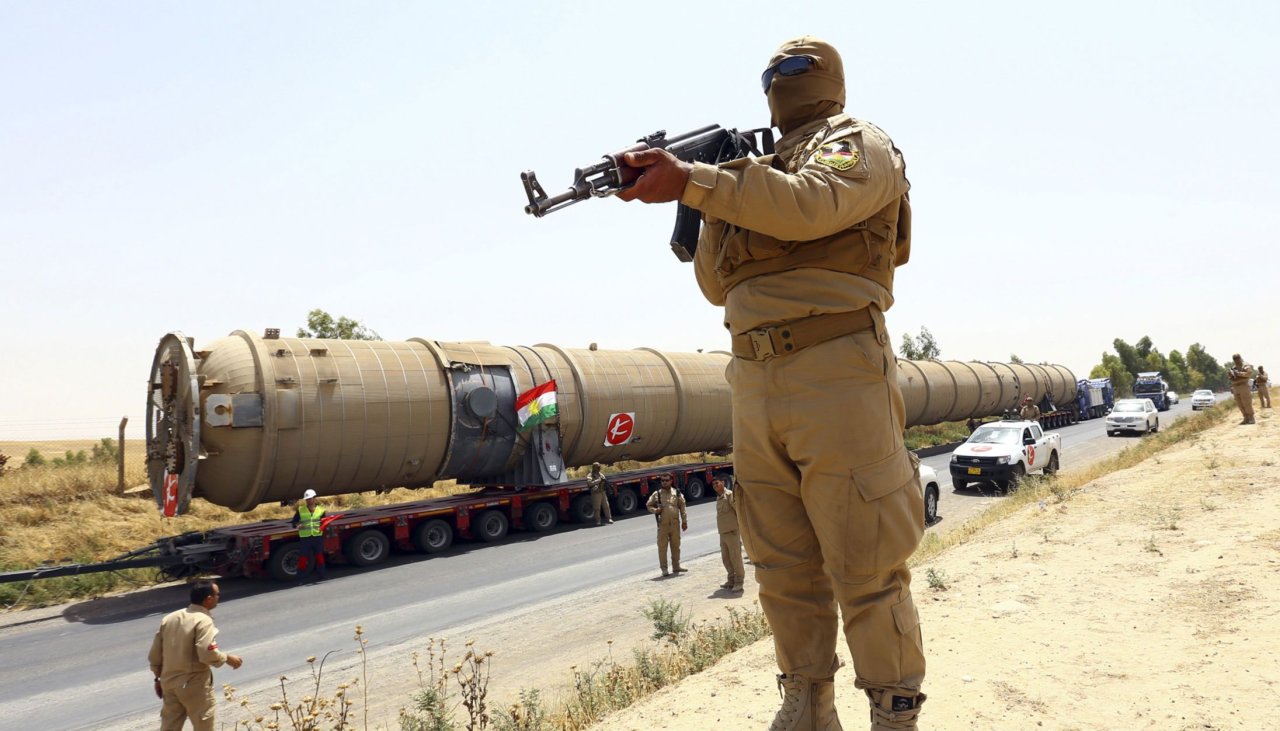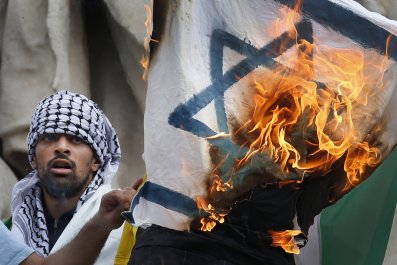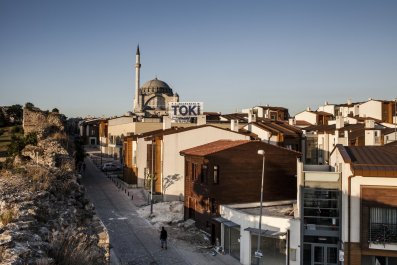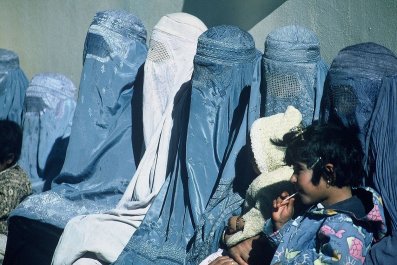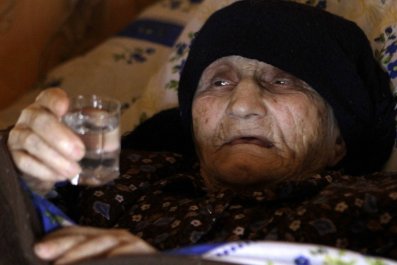When Isis militants stormed the Iraqi city of Mosul in June, the disastrous fragility of Iraq's armed forces was laid bare. It also ignited a process that may lead to the setting up of the world's first independent Kurdish state.
Since the departure of US forces from Iraq in 2011, relations between the Iraqi administration led by Nouri-al-Maliki and the autonomous Kurdistan Regional Government (KRG) have deteriorated. The Maliki administration has, according to Kurdistan's High Representative in London, Bayan Rahman, imposed "a policy of control and punishment".
She explains that the region's grievances with Maliki include Baghdad's failure to hand over the KRG's full 17% share of the national budget (it has never paid more than 11% and has paid nothing since January 2014), its failure to pay the salaries of the Kurdistan national guard, known as the Peshmerga, and its alleged efforts to hinder Kurdistan's oil and gas sales abroad.
What's more, Rahman says the central government has failed to carry out its obligations under the 2005 Iraqi constitution to hold a referendum in disputed, historical Kurdish territories such as the city of Kirkuk, which the Kurds claim should be part of Kurdistan.
Rahman says that "40% of Kurdish territory lies outside the regional border unilaterally drawn by Saddam Hussein in 1991". These areas, some of them oil-rich, were subjected to ethnic cleansing and government-ordered settlement by Arabs from other parts of Iraq. They have now fallen under Kurdish control as a result of the Iraqi Army's retreat from Isis.
As a result, on July 3rd, Masoud Barzani, the President of Iraqi Kurdistan, asked his parliament to prepare for a vote on self-determination. It is the first step in a process that would lead to a referendum and then a declaration of independence from Iraq. Such a move would have enormous ramifications for the whole region, and ratchet up the "New Great Game" between Turkey and Iran for dominance of the Fertile Crescent.
Unlike many of the minority ethnic groups that fought unsuccessfully for their own states in the late 20th century, Iraqi Kurdistan has achieved something close to independence without actually declaring it. That is not because Iraq's Kurds don't want formal independence.
As the former diplomat and Iraq expert Peter Galbraith says: "I've been going to Kurdistan for 30 years and I've never met a Kurd who said I'd prefer to be a citizen of Iraq than a citizen of an independent Kurdistan, and that includes the [former] President of Iraq himself."
Rather, it is because until now the KRG's leaders have seen advantages in remaining legally linked to Iraq, and because the obstacles to independence, in particular opposition from Arab Iraq, seemed impossible to overcome.
Ever since it was first negotiated in the 1960s, Iraqi Kurdish autonomy proved hard to achieve and hold. Even when Saddam's forces were prevented from ravaging Iraq's Kurdish areas by the post-Gulf War no-fly-zone, and then by the US-led invasion in 2003, Iraqi Kurdistan remained under threat from Turkey. Ankara had long viewed any manifestation of Kurdish nationalism in the region as a danger to its own social cohesion and was willing to use force to neutralise it.
However, since 2009 there has been a rapprochement, to the extent that Turkish officials have signalled that they would be happy with an independent Iraqi Kurdistan.
These days it is Iran that has become an implacable opponent of Kurdish independence. Syria potentially would be another but its ruling regime is busy fighting a civil war. Iran was friendly to Iraqi Kurdistan when the latter was a source of support in the war against Saddam's Iraq. But its sympathies have cooled as Tehran has become the dominant influence over Baghdad.
"If you look at Iranian media there is a campaign against the Kurds suggesting that the push for independence is all an Israeli plot," declares Galbraith.
In a bizarre confluence of interests, the only other country that seems equally opposed to Iraqi Kurdistan's independence is the United States. American commitment to a unitary centralised Iraqi state has actually deepened under the Obama administration, despite Vice President Joe Biden once proposing the partitioning of Iraq into three countries.
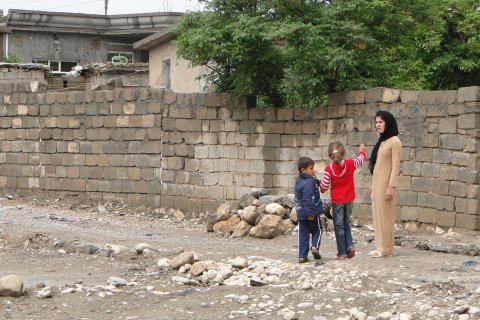
Galbraith says that the Obama administration has backed Baghdad and pressured the KRG by, among other things, "trying to stop people from buying Kurdistan's oil, and threatening legal action against companies trying to import into the United States".
Such economic pressure is no minor threat for a country of only six million people that has taken in some 250,000 refugees from Syria and about 750,000 refugees from other parts of Iraq. However, it's not clear that America has much leverage over the question: after US opposition made little difference to the breakups of Yugoslavia and the Soviet Union.
Some experts, including the journalist and investor Bartle Bull, who is writing a history of Iraq, are not so sure that independence is inevitable. "Yes the KRG is a big winner of recent events and has been strengthened in its disputes with Baghdad," he says. But if the KRG wins a referendum in Kirkuk [for that traditionally Kurdish, oil-rich region to join with Kurdistan] then its grievances with Baghdad decrease."
Independence, with all its complications and risks, would therefore be less necessary.
Bull believes it is the "destiny" of Iraqi Kurdistan "always to be loosely, uncomfortably but definitively linked to the rest of Mesopotamia". He suspects that the drive to independence may lose momentum if Isis is defeated and Maliki is replaced as Iraqi prime minister by a more acceptable and more able Shia politician. "Any likely new government would rule better, could not be as incompetent and sectarian and paranoid as Maliki's, and that would make staying in Iraq that much more attractive for both Kurds and Sunnis."
Galbraith and many other observers disagree and think Iraq "unfixable". Gary Kent, who heads the UK's All-Party Parliamentary Group on the Kurdistan Region of Iraq, sees it as unlikely that "Baghdad with a new leader and a new form of governance can reach out to the Sunnis and keep promises it has broken to the Kurds and defeat Isis."
That Maliki has become more hostile to the KRG since the Mosul debacle, accusing it of being in league with Isis, makes reconciliation seem even less likely. If Kurdistan does declare its independence it may struggle for international recognition.
According to Brendan O'Leary of the University of Pennsylvania, the new state might be quickly recognised by Turkey and Israel "but it would be much better to have comprehensive recognition". He thinks it is highly unlikely that any member of the Arab League will recognise an independent Kurdistan, so the EU and the US will be key. But EU recognition might be tricky because "Spain would almost certainly block recognition of Kurdistan given its position on Kosovo".
In general it is rare for the international community to recognise new states unless the former ruling power recognises them first. The refusal of Somalia to recognise the breakaway Somaliland Republic, which has been independent for two decades, has meant that no other country does so. Baghdad might be equally unwilling to recognise Iraqi independence. O'Leary sees the KRG as having two other choices given the weakness of the Baghdad government. It could try to renegotiate the existing constitution with a Baghdad that it does not trust. Or it could work towards the refashioning of Iraq as a confederation of two or three sovereign states with those states having a right to secede after a specified time.
Such confederations are rare. One recent example was that of Serbia and Montenegro, Another was the confederation of Sudan and South Sudan but both ultimately broke up.
An independent Kurdistan would certainly be economically viable. The region recovered with remarkable speed from the devastation inflicted by Saddam forces before 1991 and then by UN sanctions, as evidenced by its new airports, hotels and shopping malls. Its combination of security and stability, with laws favourable to foreign investment, has made it a magnet for foreign companies nervous about doing business in Arab Iraq.
Whether an independent Kurdistan could flourish is another question. Not only would it have to deal with threats from Isis and the deadly chaos in Syria, but would need to defend itself from whatever state emerges in Iraq.
Even in the best of circumstances an independent Kurdistan would need to cultivate other foreign friends lest it become a kind of dependency of Ankara. The KRG has long hoped for closer alliances with the US, the UK and other Western countries, but Gulf States like the United Arab Emirates have been quicker to invest in Kurdistan. As Gulf assistance often comes with Islamist strings attached, the idea of close relationships with countries like Qatar makes some Kurds nervous. Experts disagree as to how quickly or even whether Kurdistan will declare its independence.
In any case there seems little chance of a return to the status quo ante. As the prime minister of Iraqi Kurdistan, Nechirvan Barzani has put it, "there is Iraq pre-Mosul, and Iraq post-Mosul".
Regardless of whether Iraqi Kurdistan pursues sovereignty plus confederation, or full independence, right now it faces a more immediate problem. As experts who testified on Kurdistan to the British parliament recently pointed out, the KRG has a 1,000km border with the Isis Caliphate and only 50km border with Iraq.
Moreover, Isis now fields armoured vehicles and artillery pieces captured from the fleeing Iraqi Army, while Kurdish forces have little more than small arms.
As Galbraith puts it: "The ironic fact is that the US has ended up arming Isis, which is our enemy, and not the Peshmerga, who are our friends."
Correction: This article originally mis-spelled Kurdistan Regional Government as Kurdish Regional Government. This article also originally misspelled Bayan Rahman's name as Bayan Raman. This has now been amended. It also originally stated that there are 750,000 Syrian refugees and 250,000 Iraqi when it is, in fact, the other way around. All of these have been amended.



